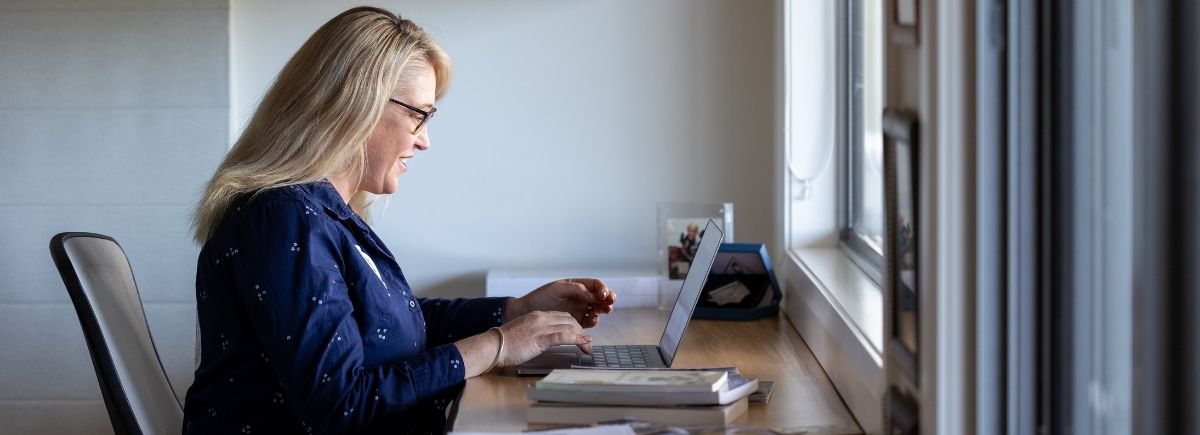
Our Blog
My dogs help me manage stress and anxiety

I didn’t always love my job. I used to be a teacher. I found my work frustrating and rewarding in equal measures. I worked with many young people whose main focus could not be my lessons because their anxiety and stress levels were unmanageable. Beyond Blue report that one in fourteen young Australians (6.9%) aged 4-17 have experienced an anxiety disorder. This is equivalent to approximately 278,000 young people. At the time I didn’t realise how much mental health played a part in learning.
Then I developed Genaralised Anxiety Disorder (GAD). I have days when I feel anxious and worried most of the time, not just in specific stressful situations, but in my normal life. My worries affected every corner of my existence, my work, health, family and friendships suffered. Even minor things such as going food shopping or being late for an appointment can cause me to feel like I can’t cope. It messed with my motivation, my memory and my creativity. It was then I realised that if some of my students felt like this, no wonder they could not focus on my lessons or motivate themselves to study for my tests. It became very clear that young people need support to manage their anxiety and stress. If they are overwhelmed by school life they are unable to learn, create, remember and fulfil their potential.
I have learned to manage my GAD with Cognitive Behavioural Therapy, medication, decreasing my workload,exercise, learning to ask for help and remembering to take time out when I need it. It has not been easy and some days are better than others. I have lots of people to thank for supporting me, but the three ‘people’ who really teach me about prioritising my mental health are my three dogs. Oscar, Minnie and River have been on this journey with me. I love them! They have not only been a furry doggy shoulder to cry on when I’m having a bad day, but they have taught me how to better days.
My dogs offer acceptance.
Dogs pretty much accept people for who they are, no questions asked. I find myself in social situations where I have the tendency to overanalyse the room. My heart starts to race and my palms sweat because my anxiety constantly informs me that I am not sure what others are expecting of me.
“Did I answer that question correctly?” “I hope they don’t think I’m an idiot!” “Do these people really want me here?”
After a long day of negotiating with my anxiety I go home to the wagging tails and smiling faces of my dogs and those thoughts just melt away. None of those thoughts arise when I spend time with my dogs. Like a good friend, they just accept me for who I am. They show me though their little gestures and looks that they truly enjoy being in my company, and I believe them.
My dogs alter my thought process.
I often work from home. Just me, my computer and my dogs. The day starts with me wondering where to start on my never ending ‘to do’ list. My mind start racing, thoughts are fast-moving and often repetitive. These thought patterns can be overwhelming for me. Sometimes they may focus on a single topic, or they may represent multiple different lines of thought, all spinning through my mind at once. These unhelpful thought patterns can increase anxiety and feelings of unease, they can disrupt my concentration and make my working day much harder than it needs to be.
While all of this is going on in my mind, Oscar, is by my feet. He lets out a big sigh, takes another deep breath, curls into a different position and goes back to sleep. I bend down and run my fingers through my snoring dogs fur. He is completely content with his mind. He reminds me to let out a big breath of my own, to savour his peace and to work towards a slower pace too.
My dogs distract me from negative thoughts.
Negative thoughts can limit our potential, shake our confidence, and ruin an otherwise enjoyable experience. For me, it is the voice in my head telling me that I’m in the way, not worthy, not enough. There are strategies I work through to ignore, quiten and sometimes even stop this negative voice, the most effective for me is often distraction. Through trial and error I have learnt that not all distraction methods are created equally. Some distractions, like binging on social media or TV often delay the problem and leave me feeling even more isolated and unmotivated. Interactions with my dogs distract me in a way that gets me interacting and feeling happy. Trick training the dogs, or playing fetch helps me stay in the moment, laugh, focus and forget about the thoughts that were
darkening my day.
My dogs have taught me to be silent.
Apart from giving our ears a rest, silence has been shown to have significant health advantages that can assist a healthy mind. From a physiological perspective silence lowers our blood pressure, boost the body’s immune system, lowers blood cortisol levels and adrenaline levels, which assists relieving tension in the body and brain, and promotes good hormone regulation. I naturally find silence very difficult, as my mind is often noisy I try to dim the volume in my head by playing music, listening to podcasts, having the TV on in the background or talking, really anything but silence. Then I catch myself looking out the window at my dogs wrestling with each other, leaping, jumping, chasing, running up and down the garden and generally goofing around. I didn’t notice it before because they weren't making a lot of noise. They are busy, in the moment, having fun, but silent. Our dogs don’t need the distraction of noise to enjoy an activity, they do not benefit by having their attention buffering from one thing to another. When we let them just be dogs and interact with one another they can do so effectively and enjoyably without the extra sounds that we humans often purposefully put in our way. It taught me that I didn’t need to behave like a monk on silent retreat to find silence. I just needed to find opportunities to dim the extra noise I thought I needed, and when I do, my mind is grateful for it.
Oscar, Minnie and River have not only supported me on my journey towards better mental health, they encourage young people all around Victoria on their journey to be more aware of their emotions and the impact stress and anxiety has on their education. Oscar, Minnie and River, along with a team of 12 other dogs work for Canine Comprehension. Our human and dog teams go into schools and teach positive mental health practices to assist learning. The Australian Companion Animal Council’s research suggests therapy dogs improve our cognitive functions by stimulating memory, problem solving and game playing abilities. Therapy dogs also positively affect our emotional well being. Our adorable four-legged buddy improves self-esteem, acceptance from others, calms the mind, lifts moods and often provokes laughter.
You should try it for yourself. Next time you are lucky enough to spend time with a dog, try to be mindful of the effect they have on your mood. We are able to see the positive difference every day. Canine Comprehension courses let young people express and understand themselves in a safe space. They are taught how to regulate their emotions, show more acceptance, alter their perspective, move away from negative thoughts and cultivate silence through training and working with our therapy dogs. I have learnt through Oscar, Minnie and River that I can manage my GAD and lead a productive and fulfilling life. I’m so glad that I work with therapy dogs who help young people widen their perspective around their mental health so they can get to a place where they are ready to learn. It is no wonder why I love my job and my dogs!
By Sarah Macdonald - CEO Canine Comprehension
